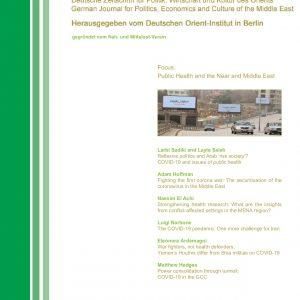Description
Iran is the country most affected by COVID-19 in the Middle East and was one of the first after China to experience an exponential development of the pandemic. The pandemic has coincided with three parallel and interlinked crises: a geopolitical confrontation with the US and Iran’s Arab neighbours; the dual shock of the oil price decline and hard-hitting US secondary sanctions, and the US refusal to ease its sanctions during the pandemic. Sanctions had already affected Iran’s health security system and crisis preparedness before COVID-19, reducing access to medical supplies and increasing the country’s vulnerability. But the interplay of multiple crises could shape Iran’s capability handle a second wave of COVID-19 in the future and complicate the transnational management of the pandemic. However, adopting a cooperative approach could create positive incentives for a change of direction in the Middle East, reducing pressures on a stressed global health security system.
Luigi Narbone is Director of the Middle East Directions Programme at the Robert Schuman Centre for Advanced Studies as well as coordinator of the Peace and Security cluster at the School of Transnational Governance, European University Institute. Previously, he was Ambassador, Head of the EU Delegation to Saudi Arabia, and non-resident Ambassador to Qatar, Oman, Bahrain, the UAE and Kuwait and has held several positions in foreign affairs in the EU and the UN. His main research interests are MENA geopolitics, security and political economy, Gulf studies and peace-building.




Reviews
There are no reviews yet.